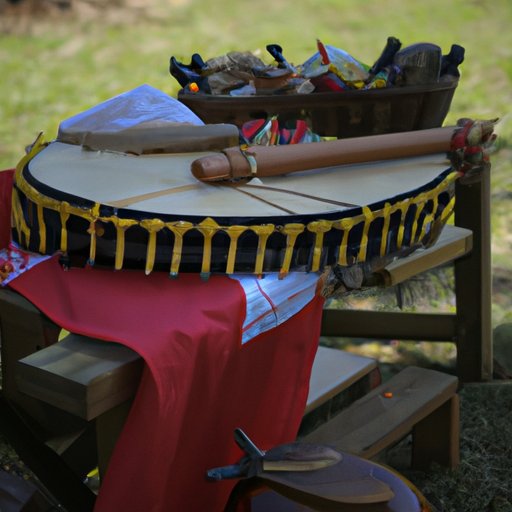Introduction
Gullah culture is an African-American cultural tradition that has been passed down through generations. It originated among enslaved African Americans who lived in the coastal areas of South Carolina and Georgia. The term “Gullah” is derived from the Gola people of West Africa, who were forcibly taken to the Americas during the transatlantic slave trade. Gullah culture is a rich and diverse blend of African and European cultures, with roots in both the continent and the diaspora.
Today, Gullah culture is still alive and well in the United States, especially in the coastal regions of South Carolina and Georgia. There are still many Gullah people living in these areas, and they continue to practice their unique traditions and customs. This article will explore the history, language, traditions, cuisine, art, and music of Gullah culture, as well as the impact it has had on African-American communities.
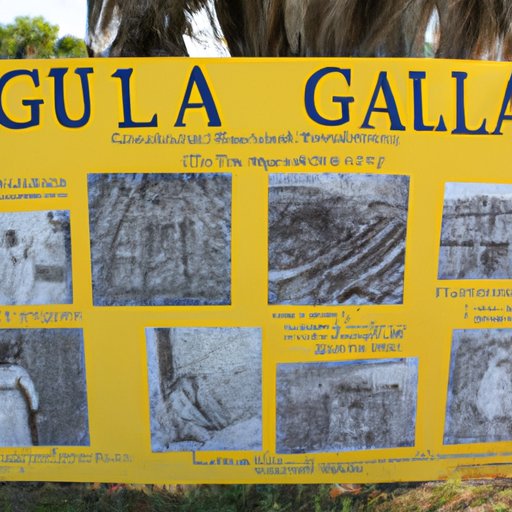
A Historical Overview of Gullah Culture
The origins of Gullah culture can be traced back to the transatlantic slave trade. Enslaved Africans were brought to the southeastern coast of the United States, primarily to South Carolina and Georgia, where they were forced to work on plantations. The harsh conditions of the plantation system created a need for the enslaved Africans to create their own culture and identity.
In order to survive the brutal conditions of slavery, the enslaved Africans formed tight-knit communities and developed their own language, which was a mixture of English and various West African languages. This language became known as Gullah, and it served as a way for the enslaved Africans to communicate without being understood by their oppressors. Over time, Gullah became a distinct dialect of English, used only by Gullah people.
In addition to developing their own language, the Gullah people also preserved many of their traditional beliefs and practices from West Africa. These included religious rituals such as voodoo, healing practices, storytelling, and folk art. These traditions were passed down from generation to generation, helping to keep the Gullah culture alive.
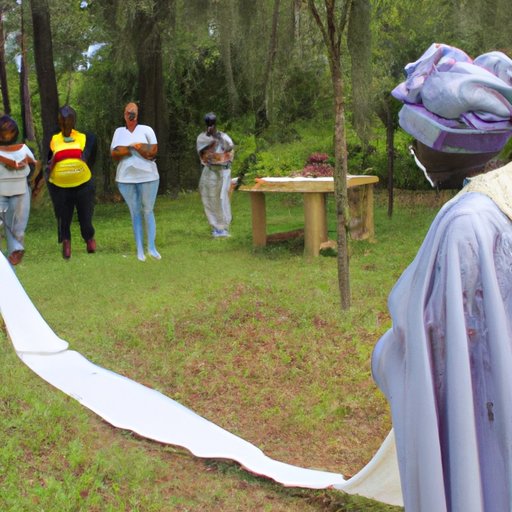
Exploring the Language and Traditions of Gullah People
The Gullah language is a combination of various West African languages, English, and other European languages. It is spoken mainly in the coastal regions of South Carolina and Georgia, but can also be heard in parts of Florida, North Carolina, and Virginia. Gullah is considered to be a creole language, meaning it is a hybrid of two or more languages. It has been described as a “linguistic bridge” between African and European cultures, as it contains elements of both.
In addition to the language, Gullah people also have their own set of traditional beliefs and practices. These include spiritual and religious beliefs, such as belief in reincarnation and ancestor worship. Gullah people also have strong ties to the land and the sea, and many of their practices and rituals are centered around nature. For example, Gullah people believe in the power of hoodoo, a form of African folk magic, as well as herbal medicine and divination.
The Gullah Geechee Way of Life
The Gullah Geechee people were the first African-Americans to live in the coastal areas of South Carolina and Georgia. They were subjected to the harsh conditions of the plantation system, which led to a distinct way of life. The Gullah Geechee people adapted to the environment, creating a unique culture that was heavily influenced by African traditions.
The Gullah Geechee people developed a type of subsistence farming called the “provision ground” system. This system allowed them to grow their own food, hunt wild game, and fish in the rivers and creeks near their homes. In addition, they were able to barter for goods and services with other local communities. This allowed the Gullah Geechee people to maintain their independence and autonomy despite the oppressive conditions of slavery.
The Gullah Geechee people also adopted many African traditions, such as music and dance. They incorporated African instruments, such as drums and banjos, into their music and created their own style of dance. This helped to preserve African culture and traditions, even in the face of oppression.
The Impact of Slavery on Gullah Culture
Slavery had a profound impact on Gullah culture. The most obvious effect was the forced migration of African people to the Americas, which caused a separation from their native African roots. This separation led to a loss of language, traditions, and cultural practices. It also caused a breakdown in family and social networks, which further isolated the Gullah people.
Another major consequence of slavery was the loss of land ownership. Before the Civil War, many Gullah people owned their own land, but after the war, much of this land was taken away from them. This made it difficult for the Gullah people to sustain themselves and remain independent, as they no longer had access to the resources they needed to survive.
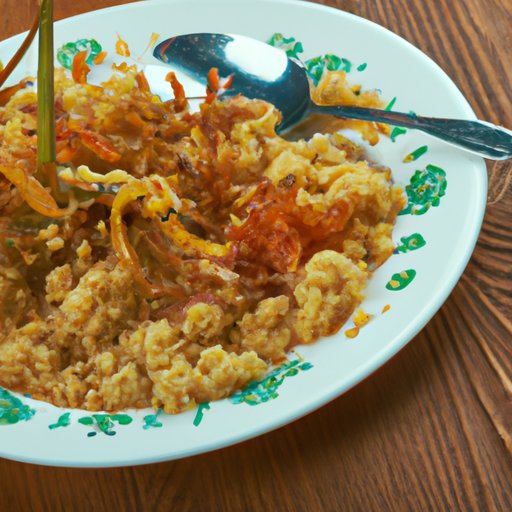
Gullah Cuisine: Traditional Dishes and Recipes
Gullah cuisine is a reflection of the region’s history and the diverse cultures of its people. It is a unique blend of African and European flavors, featuring ingredients such as rice, okra, sweet potatoes, and seafood. Common dishes include shrimp and grits, red rice, and hoppin’ john. Gullah cuisine also includes many traditional recipes, such as benne cakes and sweet potato pie.
Gullah cuisine is typically prepared using traditional cooking methods, such as boiling, steaming, and baking. Ingredients are often cooked slowly over a low flame, allowing the flavors to develop and mingle. This slow cooking technique gives Gullah cuisine its distinctive flavor and texture.
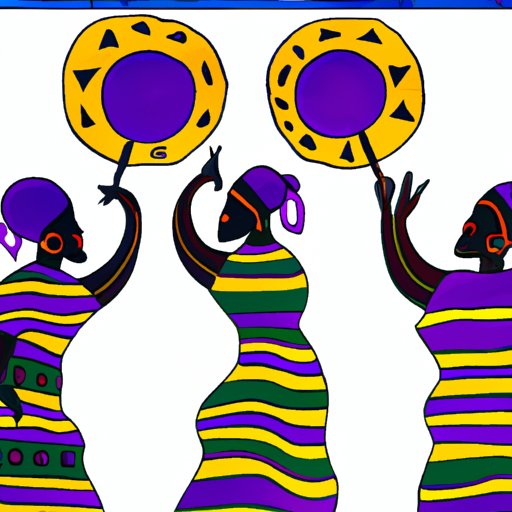
African Influences in Gullah Art and Music
Gullah art and music are deeply rooted in African traditions. African musical styles, such as call-and-response singing, have been preserved and adapted by Gullah musicians. African instruments, such as drums and banjos, are also commonly used in Gullah music. Gullah art often features vibrant colors and images, reflecting the influence of African art and culture.
Gullah music and art have also been influenced by American popular culture, such as jazz and blues. This fusion of styles has created a unique sound and visual style that is uniquely Gullah. The preservation of African traditions through music and art has helped to keep the Gullah culture alive for generations.
Gullah Communities: Living on the Coast Today
Today, there are still many Gullah communities living along the coasts of South Carolina and Georgia. These communities are facing many challenges, such as poverty, environmental degradation, and lack of access to basic services. Despite these challenges, the Gullah people are still proud of their culture and traditions, and many are working to preserve and protect their way of life.
Gullah communities are also working to promote economic development and educational opportunities for their members. Organizations like the Gullah Geechee Cultural Heritage Corridor Commission are working to preserve Gullah culture and protect the lands and waters of the region. These efforts are helping to ensure that Gullah culture remains alive and vibrant for future generations.
Conclusion
Gullah culture is a unique blend of African and European cultures, with a rich history and traditions that span centuries. From its beginnings in the transatlantic slave trade to its modern-day presence in the coastal areas of South Carolina and Georgia, Gullah culture has played an important role in African-American history. Through its language, cuisine, art, and music, Gullah culture has helped to preserve African traditions and foster a sense of community among African-Americans.
Today, Gullah communities are still facing many challenges, including poverty and environmental degradation. However, the Gullah people are determined to preserve their culture and traditions for future generations. With the help of organizations such as the Gullah Geechee Cultural Heritage Corridor Commission, Gullah culture is sure to remain vibrant and alive for years to come.
(Note: Is this article not meeting your expectations? Do you have knowledge or insights to share? Unlock new opportunities and expand your reach by joining our authors team. Click Registration to join us and share your expertise with our readers.)
